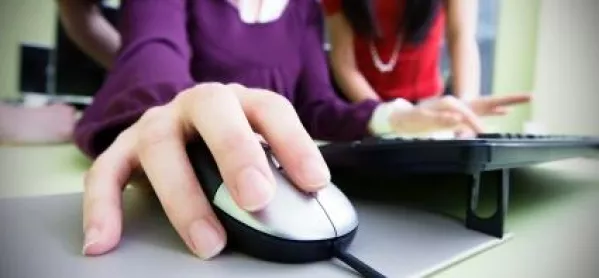First Step - Smart thinking

A.A. Milne once said: “One of the advantages of being disorderly is that one is constantly making exciting discoveries.” But, for teachers, being disorganised is a recipe for disaster, not discovery. In the run-up to the new school year, there is a lot you can do to avoid disaster and reduce stress.
First of all, get your work computer-ready. If you are given a laptop by your school, get it as early as possible so you can organise the files and folders in a way that makes sense to you. If you can’t get hold of it until term starts, organise files and folders on a flash drive or USB stick, ready to be copied - this can also act as a back-up drive during the year. But if you use a portable memory device, protect it with a password, in case you lose it and there is pupil data on it.
Software compatibility is always an issue. It’s not just Mac versus PC - there is also compatibility with various versions of commonly used software. Find out the versions in use and check that your files are compatible. Also, check if the school software licences cover you at home.
Get to know the IT staff and make sure they provide you with your password, log-in ID and staff email as soon as possible. You may have to get used to a new system, virtual learning environment or email provider. Try to check them all out over the summer.
Think about setting up spreadsheets with class lists for recording marks and test results. Make a basic plan of your classroom and print off seating plans. Create templates for lessons on PowerPoint or the interactive whiteboard, and for worksheets and shortened lesson plans. Create folders for storing everything - lesson plans, data, schemes of work, useful pictures and web addresses.
Never use your work laptop to store personal files, data, images or films; keep it strictly for business. The school owns the computer, not you, and it can be scanned for inappropriate material at any time. If any is found, you could be disciplined.
If you are using a personal laptop, set up a new user area for work only. There will be files, emails and photos on your home computer that you do not want pupils to see. Separating work from personal material reduces the risk of something inappropriate being displayed accidentally.
Also, if you have social networking pages, such as Facebook or MySpace, you can bet that older pupils will either Google you or search these sites for anything they can find out about you. Make sure your privacy settings stop casual browsers from seeing anything but basic details. Think about the photos you store online: do they show you in compromising situations at parties or in the pub? As a teacher, how you behave and are perceived in your private life may conflict with your professional life; remember you are a role model and need to be seen as such.
Although it is good to focus on technology, do not forget pens, pencils, rulers and erasers. Buy a cheap stock of these because you will need them and pupils will want to borrow them.
Teaching brings with it a mountain of paperwork, so think now about how you will organise it when the avalanche starts. Create files for memos, departmental papers, weekly newsletters and minutes of meetings.
Teachers are hoarders and collect useful things, from DVDs and newspaper cuttings to old cardboard, string and plastic bottles and containers. It all has to live somewhere. Think now about where you plan to store your treasure chest.
James Williams is a lecturer in education at the University of Sussex.
TEN TOP TIPS FOR ORGANISING YOUR WORKING LIFE
- Set up spreadsheets with class lists for recording marks.
- Make a basic plan of your classroom and print off seating plans.
- Create basic templates for lessons on PowerPoint or the interactive whiteboard, and for worksheets.
- Set up folders for storing schemes of work, useful pictures, website addresses and lesson plans.
- Organise your laptop. Make sure that you remove inappropriate material.
- Check your social networking site for privacy settings and remove inappropriate content, or shut it down.
- If using a personal laptop, create a strictly work-only user area.
- Buy a stock of cheap pens, pencils, rulers and erasers.
- Set up a filing system for newsletters, memos, reports and meeting minutes.
- Create a treasure chest of useful materials and think where you are going to store it.
Keep reading for just £1 per month
You've reached your limit of free articles this month. Subscribe for £1 per month for three months and get:
- Unlimited access to all Tes magazine content
- Exclusive subscriber-only stories
- Award-winning email newsletters



